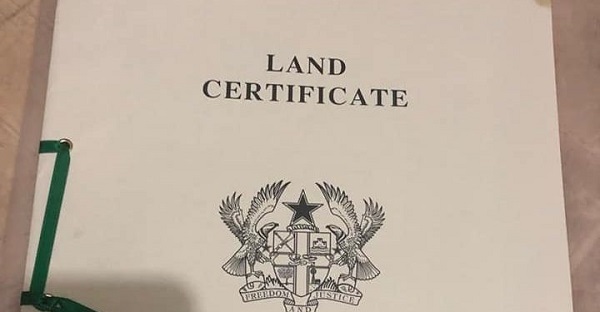
How do you acquire landed properties in Ghana?
Dear Mirror Lawyer, I am a young man desirous of owning landed properties in Ghana but do not know about the land tenure system nor laws governing lands in Ghana as there are so much chaos surrounding land acquisition in Ghana.
Can you kindly enlighten me on the fundamentals?
Alfred Abakah, Achimota Accra
Dear Alfred, Land in Ghana is governed by the 1992 Constitution, customary law, common law as well as enacted legislation.
Customary laws refer to laws that are peculiar to particular communities in Ghana.
Ownership of land in Ghana is either private or public. In Ghana, private lands are either owned by skins or stools (that are managed by various chiefs), families or individuals. On the other hand, public lands are lands vested in the President on behalf of and in trust for the people of Ghana.
The highest form of interest in land is the allodial interest which is derived from customary law and is often held by stools and skins or families who acquired the same through discovery, settlement, conquest, gift or purchase.
The 1992 Constitution provides that, all stool and skin lands in Ghana shall vest in the appropriate stool or skin on behalf of and in trust for the subjects of the stool or skin.
Another form of interest in land is the freehold interest which may either be under customary law or common law. The freehold interest is held for an indefinite period. The 1992 Constitution frowns on the creation of a freehold interest or right over any stool land in any person or body of persons.
Leasehold interests also exist under Ghana land law and are the most common form of grants existing today. A leasehold interest exists for a specified period of time.
Under the 1992 Constitution, every person has the right to own property either alone or in association with others. The Constitution stipulates that a non-Ghanaian may not acquire any form of freehold interest in land in Ghana. However, a non-Ghanaian may acquire a lesser interest such as a leasehold interest for a period not exceeding 50 years.
This applies to foreign companies that wish to enter into leasehold agreements. A leasehold agreement may however be renewed subject to agreement between parties.
The Conveyancing Act 1973 NRCD 175 now repealed and replaced by the Land Act, 2020 (Act 1036) provides that, for lease agreements to be enforceable, they must be in writing with the exception of lease agreements that are for a period of less than three years and are taking effect in possession.
The State Lands Act, 1962 (Act 125) also now repealed and replaced by the Land Act, 2020 (Act 1036) grants the Government of Ghana the authority to acquire land for the public interest. By virtue of Article 20 of the 1992 Constitution, property cannot be compulsorily acquired by the State unless it is for the public interest.
Where the State compulsorily acquires property, adequate compensation is to be made or a suitable alternative land is to be provided in light of the existing economic, social and cultural circumstances.
Interests in land must now be registered under the Land Act. Where an area has been marked as a registration district, the registration must be completed under the Land Registration Division of the Lands Commission. At the moment, the designated registration districts include the Greater Accra Region and Kumasi.
